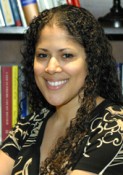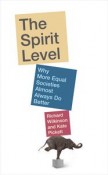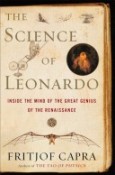NEW – ERWIN CHEMERINSKY offers a progressive vision of the Supreme Court
Written on December 18th, 2018In his newest book, We the People: A Progressive Reading of the Constitution for the 21st Century, ERWIN CHEMERINSKY, Dean of Berkeley Law, makes the case that the right has since the 1970s developed and enacted a clear vision of constitutional interpretation. He calls on progressives to fight back with an alternative vision based on fulfilling the Constitution’s promise of liberty and justice for all.
Q&A: MALOU INNOCENT – Foreign Policy Analyst, Cato Institute
Written on July 13th, 2010 |
Aired 07/11/10
MALOU INNOCENT is a Foreign Policy Analyst at the Cato Institute, and her primary research interests include Middle East and Persian Gulf security issues and U.S. foreign policy toward Pakistan, Afghanistan, and China. Following dual Bachelor of Arts degrees in Mass Communications and Political Science from the University of California at Berkeley and a Master of Arts degree in International Relations from the University of Chicago, she has appeared as a guest analyst on CNN, BBC News, Fox News, Al Jazeera, CNBC Asia, and Reuters, and has published in journals such as Foreign Policy, Wall Street Journal, Asia, Christian Science Monitor, Armed Forces Journal, the Guardian, and the Huffington Post.
Join us as we talk about Afghanistan, Pakistan, Iraq, the Middle East, the cost of foreign adventures to domestic well-being, and hopefully some issues and areas that I haven't even thought of yet.
Q&A: RICHARD WILKINSON & KATE PICKETT, Authors – The Spirit Level: Why More Equal Societies Almost Always Do Better
Written on February 5th, 2010 |
Aired 01/31/10
RICHARD WILKINSON & KATE PICKETT authors of an important new book: The Spirit Level: Why More Equal Societies Almost Always Do Better
In the UK, the Guardian says The Spirit Level "might be the most important book of the year, and The New Statesman named it one of the top ten books of the past decade.
Based on thirty years' research, The Spirit Level shows that unequal societies are bad for the well-off as well as the poor, when it comes to health and social problems, child well being, life expectancy, infant mortality, obesity, educational scores, drop out rates, illegal drug use, mental illness, homicide, incarceration, CO2 emissions, recycling, social mobility, innovation, and levels of trust.
The good news: If all these ills are related to one measure - income inequality, then, decreasing inequality should be the central goal of our politics because we can be confident that it works.
RICHARD WILKINSON has played a leading role in international research on inequality. He studied economic history at the London School of Economics before training in epidemiology, and is Professor Emeritus at the University of Nottingham Medical School and Honorary Professor at University College London.
KATE PICKETT is a senior lecturer at the University of York and a National Institute for Health Research Career Scientist. She studied physical anthropology at Cambridge, nutritional sciences at Cornell and epidemiology at Berkeley before spending four years as an Assistant Professor at the University of Chicago.
Q&A: FRITJOF CAPRA, Author and Physicist
Written on April 9th, 2009 |
Aired 04/07/09
FRITJOF CAPRA is a founding director of the Center for Ecoliteracy in Berkeley, California, which promotes ecology and systems thinking in primary and secondary education, and he's is on the faculty of Schumacher College, an international center for ecological studies in England
CAPRA is the author also of The Tao of Physics, coauthor of Green Politics and coeditor of Steering Business Toward Sustainability. His most recent book is The Science of Leonardo.
I read a book a quarter century ago that greatly influenced my view not only of science, medicine, agriculture, energy, and even politics - it influenced my view of my worldview. That book was THE TURNING POINT by physicist Fritjof Capra. He's got a new book THE SCIENCE OF LEONARDO in which he holds that DaVinci saw the world with a lens that other scientists have only discovered in the last 100 years - and which society has yet to fully grasp.
